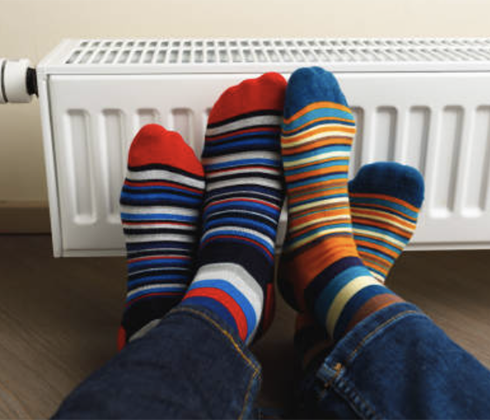The Role of Smart Home Security in Reducing Anxiety and Improving Wellbeing
In today’s fast-paced world, stress and anxiety have become an unavoidable part of life. From juggling work responsibilities to keeping up with personal commitments, feeling overwhelmed is all too common. One major contributor to stress is the fear of personal safety and home security. Uncertainty about what might happen while we sleep or when we’re away from home can take a toll on mental health. Fortunately, smart home security technology advancements are helping to reduce these worries. With tools like voice-controlled systems, remote monitoring, and automated alerts, homeowners can feel more in control. Those interested in leveraging these innovations can check out this integration guide for Amazon Alexa and Total Connect 2.0 to make their homes safer and more intelligent.
The Psychological Impact of Feeling Safe at Home
People need a home to serve as their sanctuary where they find peace and security from uncertainties in the outside world. Security concerns that persist make it hard to achieve relaxation. Studies prove that home insecurity produces chronic stress that results in adverse health effects for both body and mind. A dangerous living environment typically results in disrupted sleep patterns combined with increased anxiety levels while creating persistent feelings of discomfort.
Smart home security systems provide real-time protection and instant reassurance, which solves this problem. People gain control through smartphone alerts, entrance monitoring, and activity detection capabilities. Homeowners experience less stress because the control system eliminates their concern about possible threats during sleep or absence. A protected house creates mental ease, which enables people to devote their attention to other vital aspects of their well-being, such as restful activities, family bond time, and personal care.
Smart home security systems operate proactively as opposed to needing to react in response to incidents. Modern technology delivers preventive security solutions, unlike traditional security systems that respond after incidents occur. The combination of motion sensors with automatic lights and smart locks creates security barriers that make homes uninviting to potential intruders. The preventive security measures create an effective barrier against breaches that leads to decreased security-related stress.
The Convenience of Automation and Peace of Mind
Smart home security systems offer their users remarkable convenience as their main advantage. Traditional homeowners need to perform manual door locking and alarm activation and review of security footage through individual devices. A unified system now integrates all security features that users can access through remote control. Users can easily control their home security system through smartphone applications from any location, including the workplace vacation or different rooms.
Voice integration has advanced the level of system convenience. Users who enable Amazon Alexa or Google Assistant synchronization can operate door locking, security alarm arming, and camera feed viewing by giving voice commands. The automated system removes the anxiety of forgetting to activate security measures before resting at night. Security systems that operate effortlessly create conditions that improve users’ general peace of mind and relaxation.
Smart home security systems enable users to experience intrusion prevention and safety features, creating peace of mind throughout their daily lives. Homeowners receive emergency alerts via their phones through connected smoke and carbon monoxide detectors to allow them to respond to situations when they are not present at home. Flood sensors help homeowners save costs by alerting them to leaks when they are still minor issues.
A Healthier Mindset Through Smart Security
Mental well-being experiences deep transformations when someone lives in an environment that provides security. A feeling of security reduces the likelihood of stress-related health issues like high blood pressure along with insomnia and anxiety disorders appearing in people. Research shows that home security improvements result in better sleep quality, cognitive performance, mood, and higher productivity levels.
Parents receive maximum comfort from the security assurance that smart home systems provide. Parents get peace of mind through indoor cameras that let them monitor their children and receive school arrival alerts and front door monitoring, which minimizes daily parental stress. Elderly people and their caregivers obtain peace of mind by having security systems that identify falls while sending emergency alerts and automatically securing doors at nighttime.
Conclusion
Smart home security systems offer more than crime prevention value through their secure monitoring capabilities because they help users maintain inner tranquility while lowering stress and enhancing their general health. Homeowners experience greater peace of mind through real-time monitoring, remote access, and these systems’ automated safety features. Home safety provides psychological advantages that reduce stress and improve sleep while promoting healthy behavior patterns. The fusion of security and wellness technologies will become more integrated with each technological advancement, enabling people to build safer homes with higher peace of mind.












